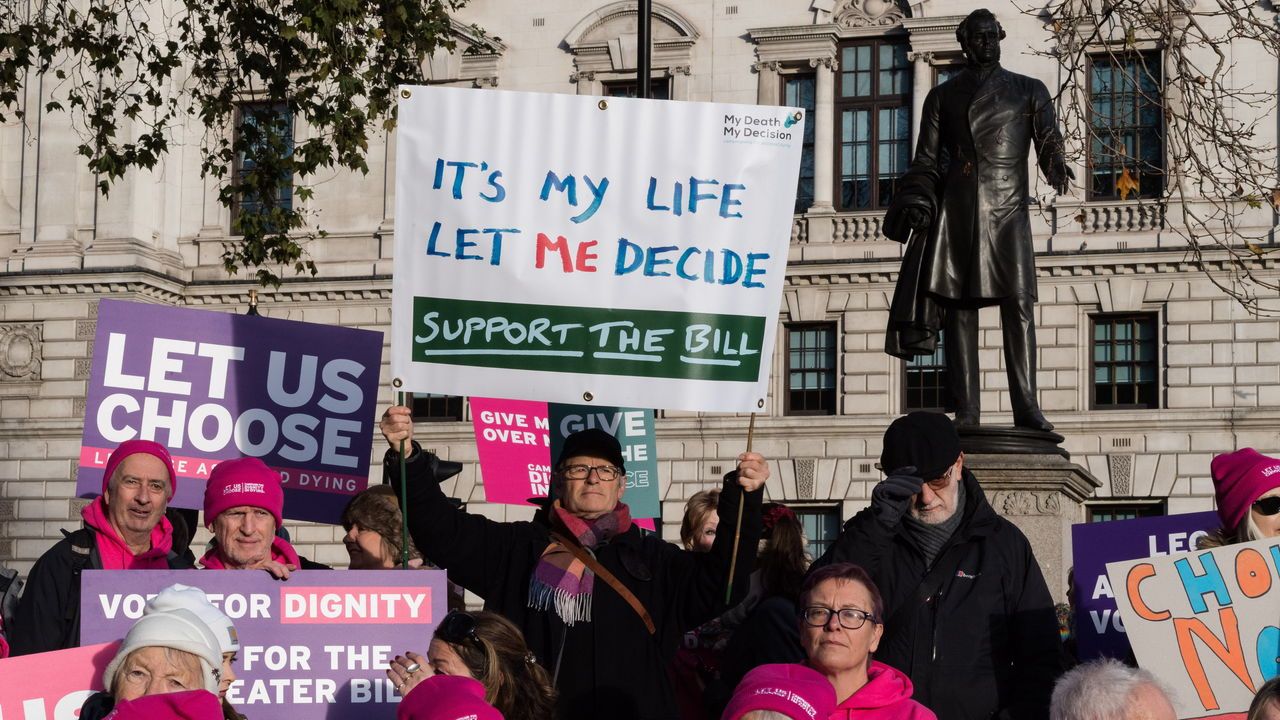- by
- 01 30, 2025
-

-
-
Loading

Loading

Last Friday British MPs voted in favour of . The second reading of the Terminally III Adults (End of Life) Bill is merely the first step of a parliamentary process; , the bill faces a long haul for its remaining stages through the House of Commons and the House of Lords. Even if it passes, what form an assisted-dying regime takes—be it on the National Health Service, or through other providers—is uncertain.But it remains a significant moment. Parliament has debated, and voted on, proposals for assisted dying on and off over the decades since 1936, when Lord Ponsonby of Shulbrede, a Labour peer and pacifist, proposed a means by which those suffering an “agony which reaches, or oversteps, the boundaries of human endurance” may “demand and be entitled to receive release”. Kim Leadbeater’s private member’s bill is the first to have cleared even the initial hurdle in Parliament. In an unwhipped vote, members voted by a margin of 330 to 275. That included a division among Labour MPs of 234 to 147. Liberal Democrat MPs, the third-biggest party, were supportive by 61 to 11. Tories were in the main opposed, by 23 to 92 against.Such a vote for a liberalising social reform may seem a foregone conclusion in hindsight; after all, this parliament is dominated by a Labour majority of MPs—many of them young—that swept to power in July. It was not; campaigners for the reform thought the number of undeclared MPs before the vote left it in doubt. As I found in my research before the election, the views of this cohort of Labour MPs were largely unknown even to each other; a combination of covid-19 and the disarray of the party under Jeremy Corbyn meant they had not mixed as generations of would-be candidates normally do in the years before their election. Moreover, the hallmark of the Labour Party under Sir Keir Starmer, the prime minister, has been to steer clear of liberalising social policies in favour of bread-and-butter issues such as pay and GP appointments. So it would not have been a surprise if a majority of their number concluded that assisted dying would be a distraction not worth the candle. As for the Liberal Democrats, they won big in long-time Conservative strongholds by focusing on local issues. This parliament was something of a black box: only at the vote were its true instincts revealed.That result will no doubt have pleased Sir Keir, who has long supported a change in the law but who, , did not put the muscle of his office behind the bill.Yet it also raises a challenging question for him: if this parliament will break with nearly 90 years of precedent in voting for assisted dying, what else would it vote for? And is this prime minister, a social liberal at heart, really exploiting the potential that his majority affords him?After all, this is a Parliament that has produced a majority for a significant social change that is more sweeping than anything in the Labour manifesto, or in the King’s speech, even when the bill in question has been rushed, badly sold, subject to a free vote and without any political cover from the cabinet. MPs’ appetite for liberalising social policy is higher than had been appreciated this time last week.